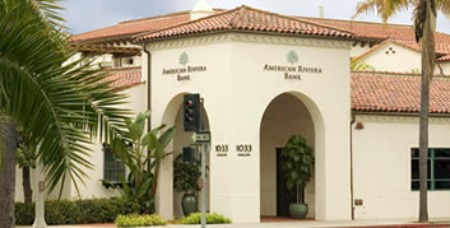
Today’s regulatory environment requires banks to be more vigilant about where their customers’ money is coming from, which can lay them open to federal regulators as part of what is known as the Bank Secrecy Act. When the regulations were beefed up by the Dodd-Frank Wall Street Reform act in 2010, the Bank of Santa Barbara was among the smaller banks that had a hard time keeping pace with the new compliance rules. With 2014 assets of $157 million, it fell under the $10 billion cap for “small” banks.
The Bank of Santa Barbara went through a period of retraining and updating its internal controls, according to the FDIC Consent Order, which it did successfully by February 2015. By then, talks were beginning with American Riviera Bank — just 50 yards down the street, as bank CEO Jeff DeVine describes — for a merger that was completed in December.
The two banks combined left American Riviera capitalized at $400 million in assets. A report released this week for the joined banks gives growth of 33 percent in deposits, 28 percent in loans made, and 18 percent in net income — before taxes and an audit — through 2015, excluding merger costs. The unaudited net income for the year was $1.3 million, or 48 cents per share, compared to $1.569 million for 2014. The remaining merger costs will be expensed in the first quarter of 2016, the bank report stated, and will continue to be identified separately.
Of the human cost of mergers like this, DeVine explained that they first thought about 20 positions would be found redundant. Over the course of the six-month merger, however, through retirement, people jumping ship, and some new positions, about 10 people were let go with severance for each year employed. The bank’s downtown headquarters, at 1033 Anacapa Street, and its branches in Montecito and Goleta hold 62 employees. They make loans across all categories — real estate, construction, business, home equity — with growth consistently in double digits, said Michelle Martinich, the bank’s chief financial officer. Assets are expected to grow to a half-billion “before we know it,” assured DeVine. “Our biggest priority is that customers are taken care of, our employees are comfortable, and at this point we’re not worried about expansion.”



